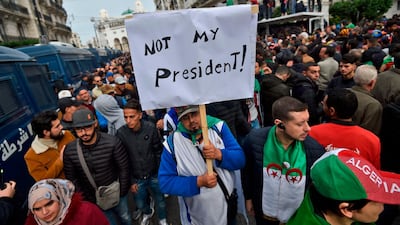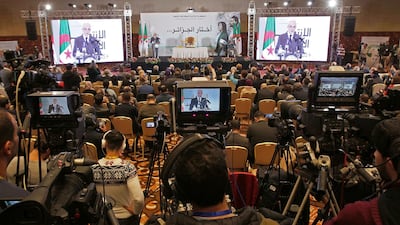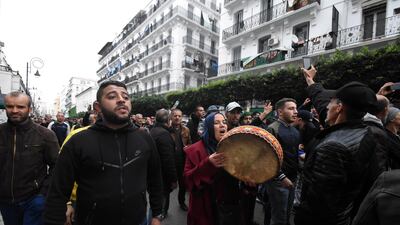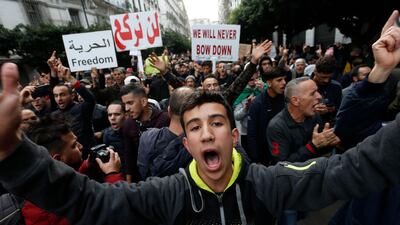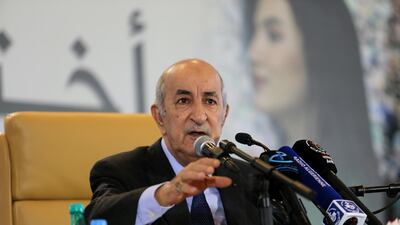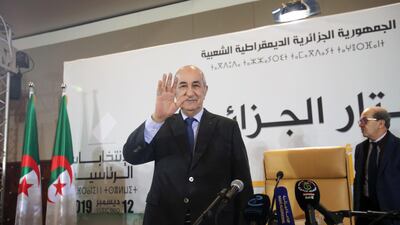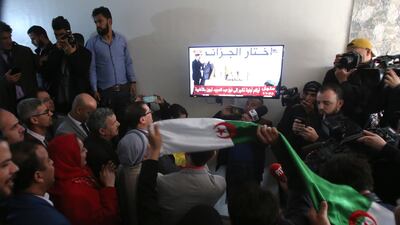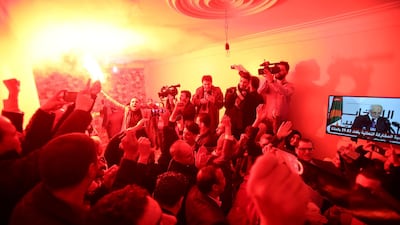As Algerian protesters plan to mark one year since the start of the anti-government protests that toppled longtime leader Abdelaziz Bouteflika this weekend, activists say the government has ramped up a crackdown on dissenting voices.
In December, Abdelmadjid Tebounne, an ally of former President Bouteflika, who resigned in April after 20 years in office, was elected as president in a vote largely rejected by protesters as illegitimate due to the lack of real opposition.
Activist Samir bin Al Arabi, who spent 140 days in pretrial detention for “weakening the morale of the army” before being released earlier this month, said that although the country spent months without a leader, things are worse under Mr Tebboune.
“Freedom is under pressure, people are being suppressed and arrested,” he said. “There is no independence in the justice system — this shows that things are not going well."
Mr Al Arabi said he did not view Mr Tebbounce as a legitimate leader.
“The Algerian people did not vote — Mr Tebboune is considered a civil figure for a military authority … We cannot discuss the possibility of a dialogue with this president when there are still people in prison and a closed media," he said.
A report by the Algerian League for the Defence of Human Rights (LADDH) to mark the one year protest anniversary recorded at least 1,000 arrests in December 2019, of which 200 people were detained by police. This year so far, however, as many as 2,500 arrests have been made.
The group said that 70 people are still in prison and many more are in custody pending trial.
“People join protests every Tuesday and Friday but with great difficulty as authorities would, each time, try to suppress them said Said Salhi, vice president of the LADDH. He added security services closed entrances to the capital every Friday and arrested demonstrators at the start and the end of peaceful demonstrations.
“Since June 21, people have been criminalised for carrying the Amazigh flag, which has been actually raised for years, saying it was a “violation of the national unity”. Others were arrested for transgressing the morale of the army because they asked that the army be dismissed from politics."
The Amazigh, or Berber, minority has lived in Algeria and Morocco for thousands of years and spent decades fighting for cultural recognition.
Mr Salhi said that the protesters have been shouting for a “civilian, not military state”.
In an attempt to temper the continued protests, President Tebounne has made moves to open the country up to tourism with changes to visa regulations and has strengthened ties with other countries, such as the UAE, in an attempt to improve the country’s economic outlook.
On Wednesday, he announced that February 22 will be made a special holiday in honour of the peaceful movement and has promised “radical changes” to the way the country is run.
However, many remain unconvinced that the real change they have taken to the streets to demand is coming. They have vowed to continue protesting until the political system is completely reformed.
“I am one of the millions of Algerians who believed that the regime must go and that we must reject its leaders’ practices and rule approach” said Mr Al Arabi.
“It is impossible for a servant of Bouteflika to be better than Bouteflikla. Tebboune also cannot assume an employee role in Algeria and cannot be a tool to build a new Algeria; Algeria should be built with new faces, new mechanism and a new regime.”
